Top 20 Amazing Life Hacking Benefits of Walnuts
1. Boosts Brain Function
2. Improves Heart Health
3. Promotes Weight Loss
4. Prevents Cancer
5. Reduces Wrinkles
6. Reduces Stress and Balances Hormone Levels
7. Improves Liver Health
8. Strengthen Bones and Teeth
9. Boost Immunity
10. Improves Eyesight and Skin Health
11. Get Slimmer, Stay Fit
12. Induces and Improves Sleep
13. Strengthen Your Hair Growth
14. Improves Artery Functions
15. Fights Diabetes
16. Good For Enhancing Sperm Quality
17. Get Glowing Skin
18. Adds Additional Years To Life
19. Recommended During Pregnancy
20. Food For Brain and Mood
23 Different Ways To Incorporate Walnuts Into Our Diet
1. Snack On Them
2. Add Walnuts To Oatmeal or Yogurt
3. Use Walnuts in Salads
4. Make Walnut Butter
5. Walnut-Crusted Avocado Fries
6. Walnut Stuffed Mushrooms With Vegetables
7. Walnut-Crusted Goat Cheese
Here's a simple yet elegant appetizer that's perfect for entertaining. Roll a log of goat cheese in a mixture of finely chopped walnuts and herbs, and then bake it until the cheese is soft and the crust is golden.
The result is a dish that's both visually stunning and incredibly delicious. Serve it with some crusty bread or crackers for a complete experience. Combine walnuts with other nuts, dried fruit, and seeds for a healthy and satisfying snack.8. Make Walnut Crusted Chicken or Fish
9. Add Walnuts to Smoothies
10. Make a Walnut Pesto Pasta
11. Classic Walnut Banana Bread
12. Walnut-Crusted Salmon
13. Walnut-Crusted Tofu
14. Walnut-Crusted Cauliflower
15. Walnut-Stuffed Dates
16. Walnut Energy Balls
17. Walnut-Stuffed Chicken Breast
18. Walnut-Crusted Pork Chops
19. Walnut-Crusted Apple Pie
20. Walnut-Crusted Quiche
21. Walnut-Crusted Pizza
22. Walnut-Crusted Tuna Steak
23. Walnut-Crusted Chocolate Truffles
Endless Possibilities of Walnuts
Nutritional Benefits Of Walnuts
1. Rich in Healthy Fats
2. High in Protein
3. Good Source of Fiber
4. High in Antioxidants
5. Rich in Vitamins and Minerals
6. Reduces Inflammation
7. Improves Heart Health
8. Omega-3 Fatty Acids
9. Vitamin E and Zinc
10. Good Source of Manganese and Magnesium
11. Copper and Selenium
12. Improves Brain Function
13. Helps in Losing Weight
14. Controls Diabetes
15. Improves Skin Health
16. Prevents Cancer
History of Walnuts
While walnut trees have been cultivated for thousands of years, the different types have varying origins. The English walnut originated in India and the regions surrounding the Caspian Sea, hence it is known as the Persian walnut. In the 4th century AD, the ancient Romans introduced the walnut into many European countries where it has been grown since.
Throughout its history, the walnut tree has been highly revered; not only does it have a life span that is several times that of humans, but its uses include food, medicine, shelter, dye and lamp oil. It is thought that the walnuts grown in North America gained the moniker "English walnuts," since they were introduced into America via English merchant ships.
Black walnuts and white walnuts are native to North America, specifically the Central Mississippi Valley and Appalachian area. They played an important role in the diets and lifestyles of both the Native American Indians and the early colonial settlers.
China is presently the largest commercial producer of walnuts in the world, with about 360,000 metric tons produced per year. The United States is second, with about 294,000 metric tons of production.
Within the U.S., about 90% of all walnuts are grown in California, particularly within the San Joaquin and Sacramento Valleys. The annual combined walnut output of Iran and Turkey is approximately the same as the United States, and the Ukraine and Romania are next in line in terms of total walnut production.
Production of Walnuts
In 2014, worldwide production of walnuts was 3.46 million tones; with China contributing 46% of the world total. Other major producers were: the United States, Iran, Turkey and Mexico.
The average worldwide walnut yield was about 3.5 tons per hectare in 2014.Eastern European countries had the highest yield, with Slovenia and Romania each harvesting about 19 tons per hectare.
In 2014, the United States was the world's largest exporter of walnuts, followed by Turkey. The Central Valley of California produces 99 percent of total United States commerce in English walnuts.
What's New and Beneficial about Walnuts:
1. Researchers are convinced—more than ever before—about the nutritional benefits of walnuts when consumed in whole form, including the skin. We now know that approximately 90% of the phenols in walnuts are found in the skin, including key phenolic acids, tannins, and flavonoids.
Some websites will encourage you to remove the walnut skin—that whitish, sometimes waxy, sometimes flaky, outermost part of shelled walnuts. There can be slight bitterness to this skin, and that's often the reason that websites give for removing it. However, we encourage you not to remove this phenol-rich portion.
2. The form of vitamin E found in walnuts is somewhat unusual, and particularly beneficial. Instead of having most of its vitamin E present in the alpha-tocopherol form, walnuts provide an unusually high level of vitamin E in the form of gamma-tocopherol.
Particularly in studies on the cardiovascular health of men, this gamma-tocopherol form of vitamin E has been found to provide significant protection from heart problems.
3. Many of us can go local for our supply of walnuts. According to the latest trade statistics, 38% of all walnuts are grown in the U.S.
Of that 38%, the vast majority (almost 90%) come from California, and particularly from the San Joaquin and Sacramento Valleys. Buying walnuts closer to home can provide great benefits from the standpoint of sustainability.
Brain development and functioning
While it has been said that walnuts are also known as “brain food”, the nut does live up to its name. Consumption of walnuts is related to better functioning of the brain activity. This is due to the presence of the omega-3 fatty acids.
Heart and Blood Circulation
Walnuts assist in reducing blood pressure and hence, improve blood flow and reduce risk of early heart disorders. This is again, due to the presence of omega-3 fatty acids.
Reduces Aging
Walnuts contain antioxidants which control the rate of aging by acting against free radicals. Some of the antioxidants found in walnuts are morin and juglone. walnut oil also reduces wrinkle formation and gives glowing skin.
Astringent Effect
Walnut leaves have astringent properties which closes pores and reduces pimples by lessening the amount of oil on the skin surface. Strengthens Hair
Hair fall reduction is related to consuming walnuts as nuts because of the presence of omega-3 fatty acids which strengthen the roots. hair strength is increased by applying walnut hair oil.
Better Sleep and Less Stress
Walnuts help in regulating the day-night cycle or the sleep-wake cycle which gives better functioning and efficiency. Furthermore, as we already know, walnut consumption reduces blood pressure which also means less stress and easier living.
Prevents Cancer
Walnuts have plant components which may have anti-cancer properties. Consumption of nuts is directly related to reduced risks in breast, prostate and colon cancer.
Sperm Fertility
Regular consumption of walnuts among young men increases semen motility and thereby better chances of fertilization.
Weight Management
Contrary to belief, regular walnut consumption will not lead to weight gain and it actually helps people who are trying to manage their body weight.
Bone Density
Bone density is related to the amount of copper or manganese. Intake for our body. Deficiency will lead to thinning and weakening of bone strength and density. Walnuts have manganese, magnesium and copper which all help in bone development and growth.
Benefits of Walnuts for Skin and Hair
Prevents skin damages:
Walnuts are loaded with antioxidants that combat the free radicals which lead to skin damages. It also prevents skin damages caused by pollution, dust, and harmful UV rays. The spotlights of the sun are damaging your skin.
While wearing SPF can be beneficial, foods like almonds which are rich in antioxidants, omega 2 fatty acids, and several vitamins can help heal the skin inside out.
Maintains healthy glow:
Everyone wishes to have a glowy, radiant and healthy skin. Omega 3 fatty strengthens the membranes of your skin cells, keeps moisture locked, keeps out toxins from damaged skin cells and can maintain the plumpy glow. These nourishing fats attract the moisture from the air and soothes the dry skin.
Healthy fats are said to have anti-inflammatory properties which can help fewer breakouts and maintain a healthy glow of the skin.
Reduces puffy and saggy skin:
The puffy face can make you look tired or sleepy. Walnuts contain roughly 11% or your daily potassium which is a vital mineral to maintain mineral balance and facilitate nerve function. It also obstructs fluid retention, bloating, puffiness and saggy skin caused by sodium. It helps you tackle the embarrassing problem of loose and saggy skin.
Maintains healthy circulation:
Poor blood circulation leads to less efficient transport of essential nutrients to your skin cells. Nuts are a rich source of fiber which reduces the excess fat and cholesterol which is a major cause of plaque development and poor blood supply.
Increasing blood circulation to your scalp and roots can help maintain healthy and well-nourished skin and hairs.
Skin healing:
Walnuts are protein power foods. Proteins are the major building blocks which play a vital role in skin repair. It helps your body produce new cells and repair the damaged ones.
Consuming a proper protein rich diet can improve your wound healing and reduce the appearance of scars on the skin, hence beautifying your skin.
Strengthen the hair:
When it comes to healthy hair, not only what you apply on it is important to make it strong, but also what you eat. Walnuts are loaded with vitamin B especially biotin which improves hair growth and strengthens your hair. Omega 2 fatty acids nourish your hair from the root and enhance its strength.
Prevents hair problems:
Walnuts are one of the best hair-friendly foods. These are a rich source of protein. Protein- keratin is the major component of your hair.
Protein rich foods not only promote healthy hair growth but are also responsible for giving hair its strength and flexibility. It also provides a considerable amount of trace element selenium.
The deficiency of selenium can lead to excess hair loss. Intake of walnuts can help prevent major scalp problems such as hair loss, dandruff, bald head etc.
10 Benefits of Walnuts for Health
1. For The Heart
Due to the high levels of omega-3 fatty acids in the walnuts, they are very beneficial to the cardiovascular system. It has been found that eating just a few walnuts per day can help reduce the blood pressure, so those with high blood pressure take note!
The omega-3 fatty acids are known to reduce the bad cholesterol in the body and encourage the production of the good cholesterol. This is again beneficial for the heart .
2. For Immunity
Walnuts have high amounts of antioxidants in them that keep your immune system healthy and prevent the onset of diseases. Add some walnuts to your diet every day to keep yourself fit as a fiddle.
3. For Brain Health
The omega-3 fatty acids present in the walnuts are also good for the brain. Having food rich in omega-3 fatty acids keeps the nervous system working smoothly and improves your memory.
4. For Breast Cancer
The American Association for Cancer Research has published in its 2009 research volume that consuming a few walnuts each day can help reduce the risk of breast cancer.
5. For Inflammatory Diseases
Those with inflammatory diseases like asthma, arthritis and eczema can benefit from walnuts as they have high amounts of fatty acid in them.
6. For Bone Health
Walnuts contain an essential fatty acid called alpha-linolenic acid. This alpha-linolenic acid and its compounds have been associated with stronger and healthier bones. Also, as you intake omega-3 fatty acids through walnuts, inflammation decreases, and this is related to keeping the bones stronger for a longer duration.
7. For Better Sleep and Stress
Walnuts have melatonin, and this compound is said to be associated with better sleep patterns. Also, the omega-3 fatty acids keep the blood pressure low and help relieve stress.
8. For Pregnancy
Having a walnut daily can greatly benefit those who are expecting. Walnuts contain healthy vitamin B-Complex groups like folates, riboflavin, thiamin, etc. These are necessary for a pregnant woman and the feteus.
9. For Constipation and Digestive System
Walnuts are rich in fiber, and they are a great way to keep your digestive system functioning properly. All humans require fiber on a daily basis to keep their bowels functioning correctly.
Usually, the common sources of protein, such as meat and dairy products, lack fiber. Having walnuts daily can help you with digestive problems and keep your bowels functioning properly.
10. For Internal Cleaning
Walnuts are your internal vacuum cleaners as they literally cleanse the digestive system of uncountable parasites. As a designated super food on account of its nutrient content, the snack food is beneficial to heart health and weight loss as well.
I call it strictly snack food because walnuts should be taken in minimal quantities each day. Moderation truly is the key for this nutrient powerhouse, if you want to avoid allergies or unforeseen health conditions.
Food use:
Walnut Meats
Walnut meats are available in two forms; in their shells or shelled. The walnuts can be as large as halves or any smaller portions that may happen during processing, candied or as an ingredient in other foodstuffs. Walnuts that are the whole fruit can be savory or sweet depending on the preserving solution.
Walnut Butters
Walnut butters can be homemade or purchased in both raw and roasted forms. All walnuts can be eaten on their own (raw, toasted or pickled) or as part of a mix such as muesli, or as an ingredient of a dish. For example, walnut soup and walnut pie are prepared using walnuts as a main ingredient.
Walnut Coffee
Walnut Whip, coffee and walnut cake, and pickled walnuts are more examples. Walnut is the main ingredient of Fesenjan, a Koresh(stew) in Iranian cuisine. Walnuts are also popular in brownie recipes, as ice cream toppings, and walnut pieces are used as a garnish on some foods.
Walnut Oil
Walnut oil is available commercially and is chiefly used as a food ingredient particularly in salad dressings. It has a low smoke point, which limits its use for frying.
Non-food applications:
Walnuts have been listed as one of the 38 substances used to prepare Bach flower remedies a medicine promoted in folk medicine practices for its supposed effect on health. According to Cancer Research UK, "there is no scientific evidence to prove that flower remedies can control, cure or prevent any type of disease, including cancer”.
World’s healthiest Foods Recommendations:
Walnuts are part of the tree nut family. This food family includes Brazil nuts, cashews, hazelnuts (filberts), macadamia nuts, pecans, pine nuts, pistachios and walnuts. It would be difficult to overestimate the potential health benefits associated with this food family!
In the majority of dietary studies, approximately one ounce of tree nuts per day is the minimal amount needed to provide statistically significant benefits, and that's the amount we recommend that you incorporate into your daily diet. In the case of walnuts, one ounce means about 7 shelled walnuts, or 14 walnut halves.
Of course, since tree nuts (including walnuts) are a high-calorie food, it's important to incorporate tree nuts into an overall healthy diet that remains on target in terms of calories. Luckily, research has shown that many people are able to take this step with good success in terms of overall caloric intake.
Walnuts not only taste great but are a rich source of heart-healthy monounsaturated fats and an excellent source of those hard to find omega-3 fatty acids. Like most nuts, they can easily be added to your Healthiest Way of Eating. Just chop and add walnuts to your favorite salad, vegetable dish, fruit, or dessert.


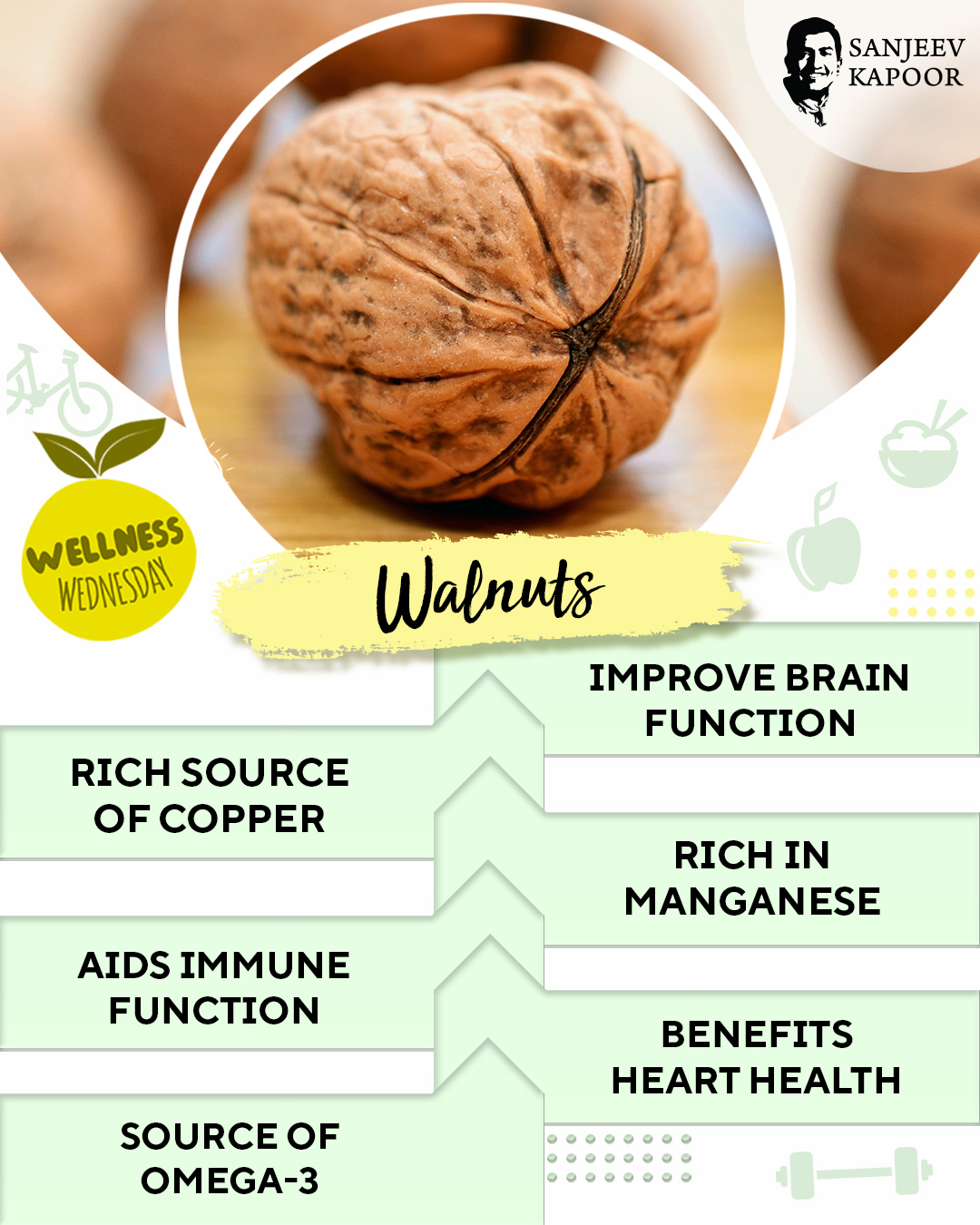







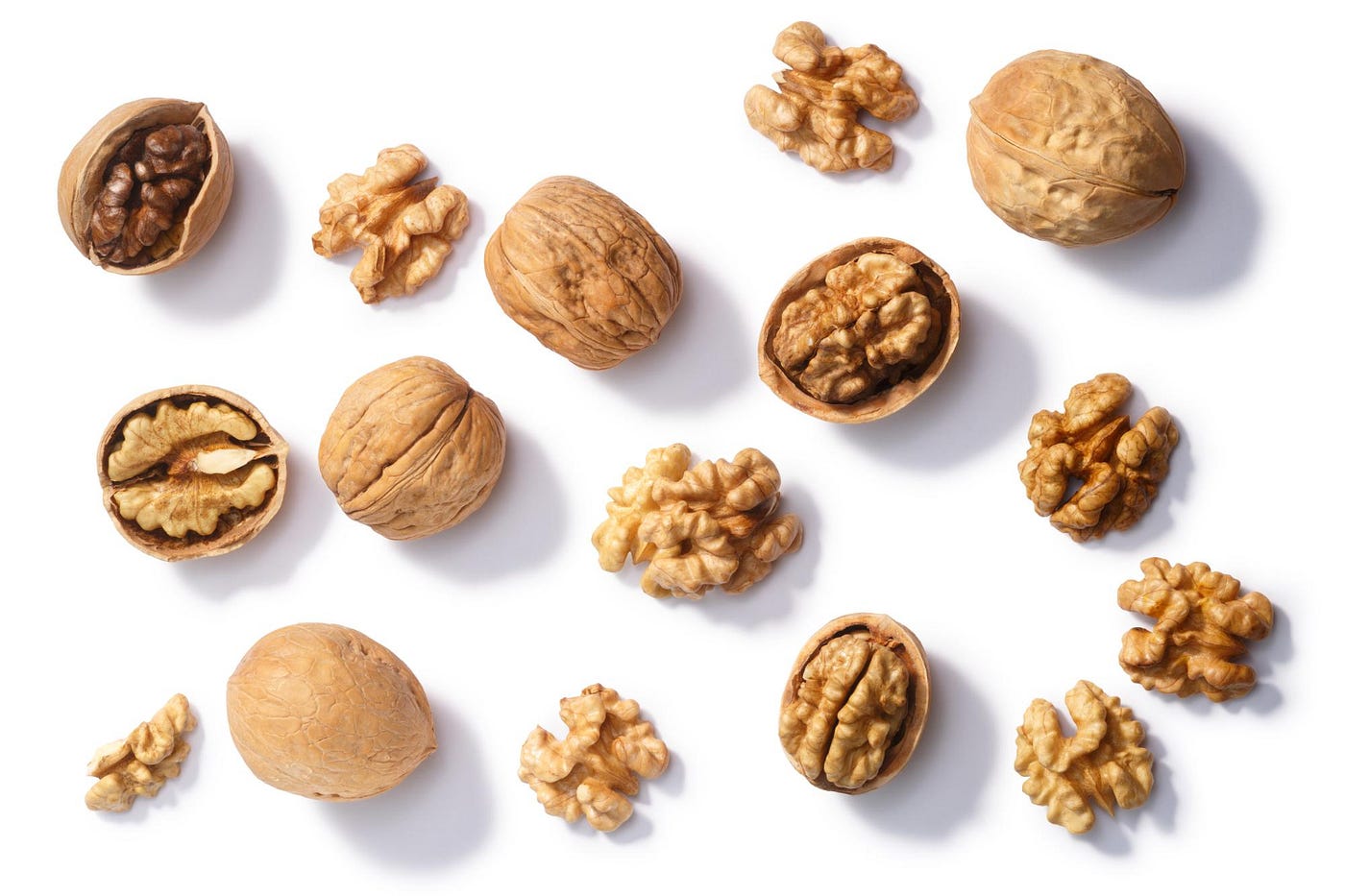



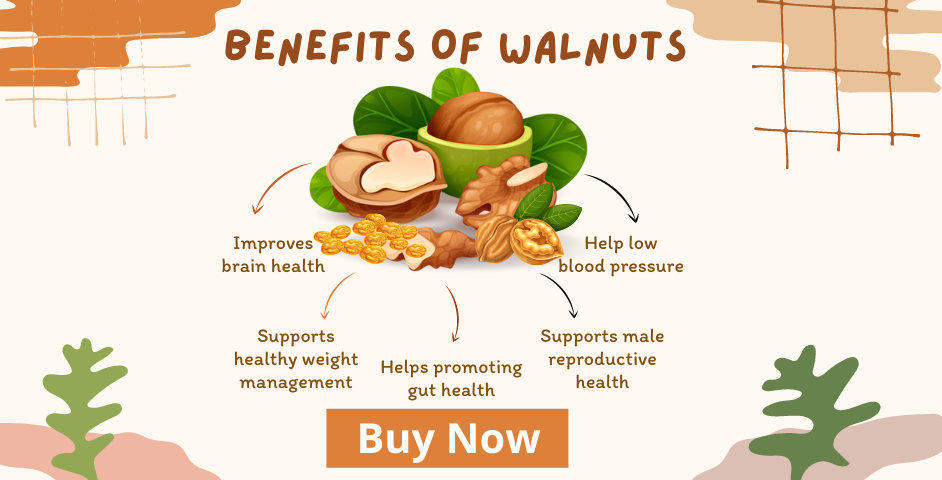










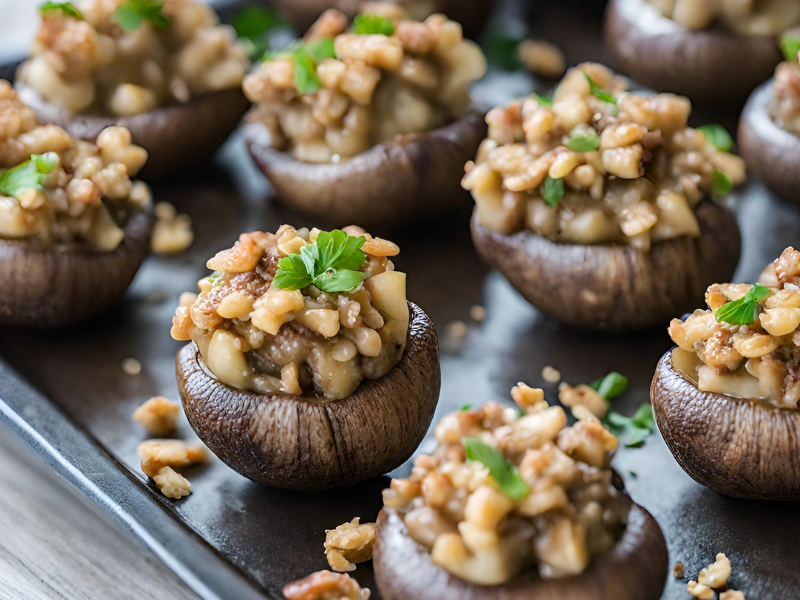




:max_bytes(150000):strip_icc()/Banana_Nut_bread_017-107f541efecf4594815d8dfa3b48ad19.jpg)








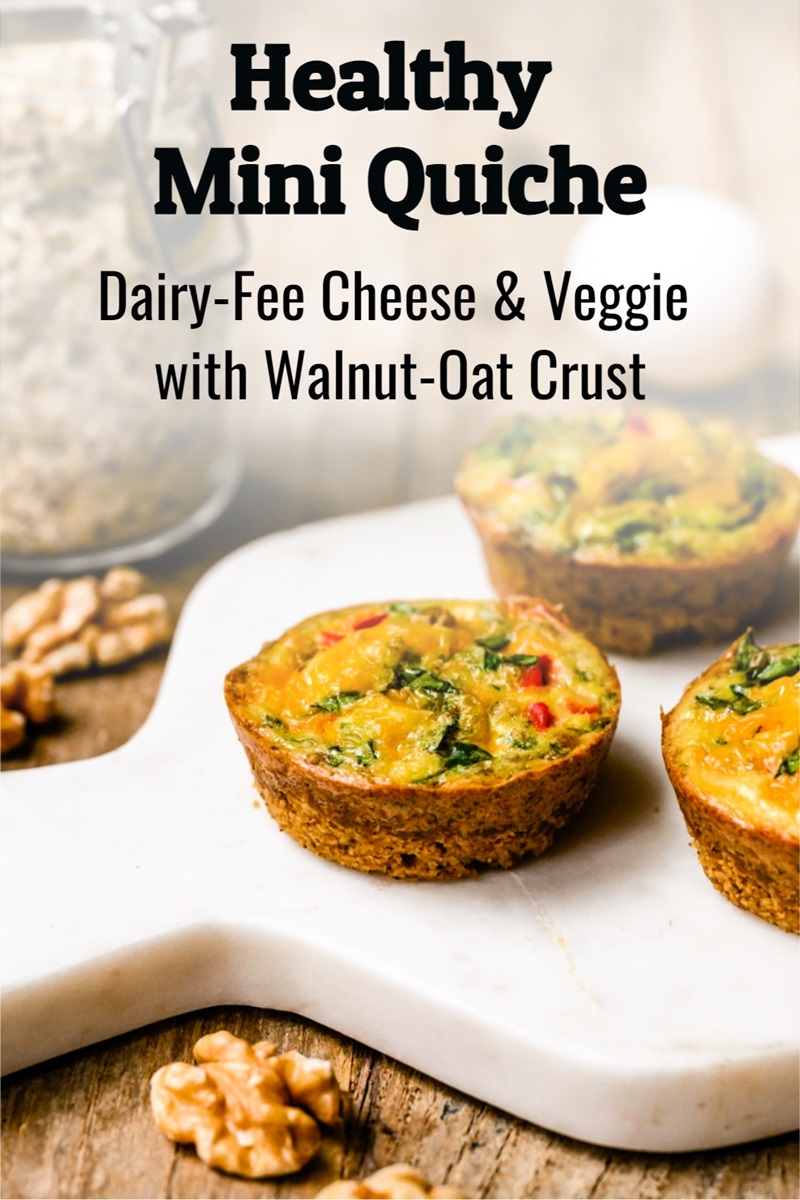

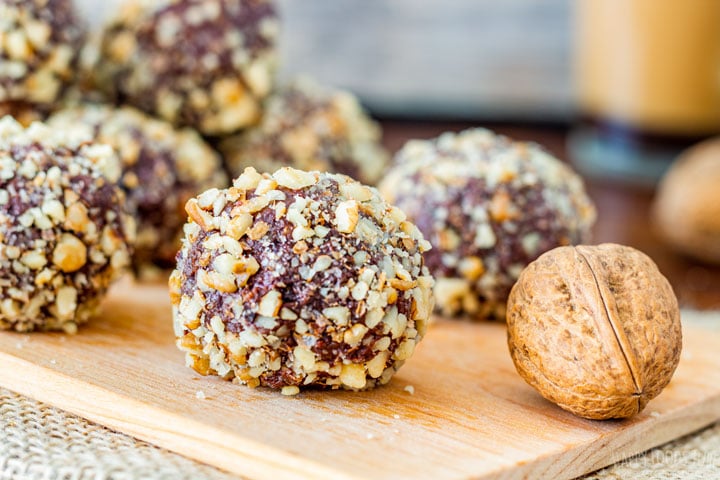






0 Comments